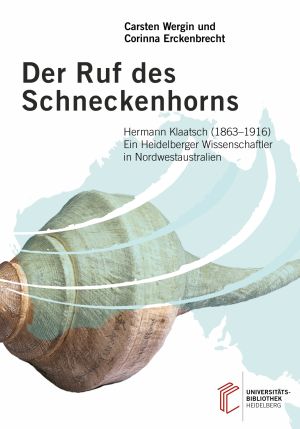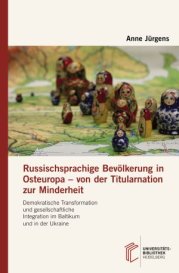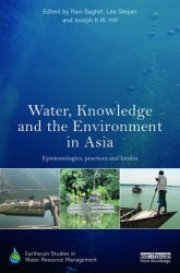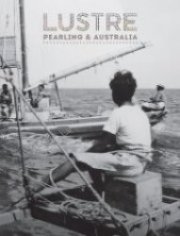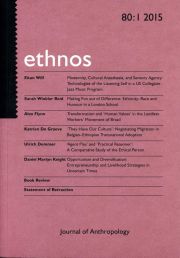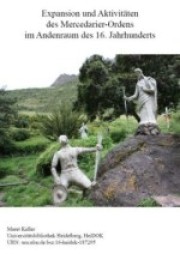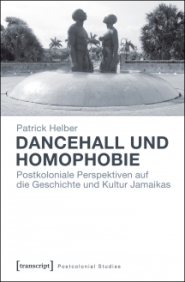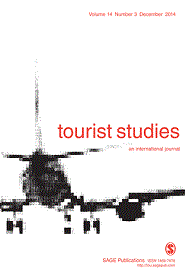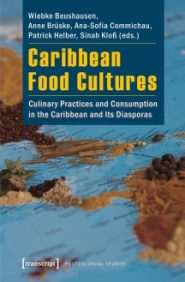Language – Food – Identity: Self-affirmation and Cultural Transformation in Contemporary Cuban-American Literature
Geographical proximity and political-economic distance between the ‘dos orillas,’ the two shores of Cuba and the USA, move Cubans on different levels. Thereby the physical movement of the migrants as well as their inner restlessness – both initiated by this closeness and distance – need to be considered. The migration-movements, which followed the revolution of 1959 and have been persisting ever since, have led to the development of different conceptions of identity in the Cuban diaspora.
The objective of this project is to examine the various forms of Cuban identity construction on the basis of autobiographies. I focus on specific elements that play a decisive role in the construction and formation of a self. Identity is negotiated with oneself as well as in dialogue with others. Therefore, communication (in a narrower and a broader sense) can be seen as a significant instrument for the development of a ‘stable’ identity. The most obvious medium for these communicative processes is language, i.e. speaking – in oral as well as in written form.
Besides language and talking there are further modes of communication, such as culinary practices. As Roland Barthes stated, food is a consumable object as well as a process of interaction that can be analyzed as a system of communication. In the context of migration and diaspora, language and food play an outstanding role and are important media of communication that create identity. Talking as well as regular eating are everyday activities that ensure the survival – in a social and a material sense.
Both identity-constituting as well as identity-reproducing elements are flamboyantly often addressed in contemporary autobiographies of Cuban-American diaspora writers. This work in progress investigates the question: What significance is given by the respective authors to “language” and “food” as systems of communication for identity formation processes of Cubans in the United States?
Personal Details
Ana-Sofia Uhl, geb. Commichau (associated member)
Heidelberg University
Transcultural Studies Marstallstr.6
69117 Heidelberg
a.commichau[at]stud.uni-heidelberg.de
Vita
March 2013
Doctoral research stay at the Cuban Research Institute of Florida International University in Miami, Florida (travel grant by the German Acadamic Exchange Service, DAAD)
Since April 2011
PhD Candidate and associated member of the Transcultural Studies Junior Research Group “From the Caribbean to North America and Back. Processes of Transculturation in Literature, Popular culture and New Media”, Heidelberg University
Since June 2011
Research assistant of the Transcultural Studies Junior Research Group “From the Caribbean to North America and Back”
October 2011 - December 2011
Doctoral research trip to Pinar del Rio, Camagüey and Havana, Cuba
Oktober 2011 - Dezember 2011
Research grant (German Academic Exchange Service) for research work in Cuba
February 2011
M.A. at Heidelberg University in Hispanic and American Studies, final thesis: Cuban literature of the 1990ies: Perspectives of the „dos orillas“
October 2008 - October 2009
Student research assistant at the Department for Romance Studies, Heidelberg University
September 2007 - April 2008
Exchange student at Universidad Complutense de Madrid (Erasmus grant)
April 2005 - February 2011
Studies of Hispanic and American Studies at Heidelberg University
Publications:
Beushausen, Wiebke; Brüske, Anne; Commichau, Ana-Sofia; Helber, Patrick; Kloß, Sinah (Eds.) (2014): Caribbean Food Cultures. Culinary Practices and Consumption in the Caribbean and its Diasporas. Transcript: Bielefeld
Calvo Peña, Beatriz (ed.): Buena Vista Social Blog. Internet y Libertad de Expresión en Cuba, in: Iberoamericana 47 (2012) (Review)
Events:
07/2014:
Organisation und Konzeption des Interdisziplinären Weblog-Workshops „Under Construction. Analyzing Postcolonial Weblogs with Literary and Computational Methods“, in Kooperation mit der Heidelberg Graduate School of Mathematical and Computational Methods for the Sciences
07/2013:
Organisation and Conception of the public lectures at the Romanische Seminar Heidelberg:
'Nu Caribbean Feminism': Politiken von Dekolonialität und Intersektionalität der queeren kubanischen Hip-Hop-Band Las Krudas (Dr. Julia Roth, Bielefeld)
Reconstruction/refondation: Haiti zwischen Wiederaufbau und Neugründung (Jeanette Ehrman, Frankfurt)
http://www.uni-heidelberg.de/md/transculturality/plakat_roth_ehrmann.pdf (Poster Link)
09/2012:
Organisation of the international conference „Caribbean Food Cultures: Representations and Performances of Eating, Drinking and Consumption in the Caribbean and Its Diasporas“, Internationales Wissenschaftsforum Heidelberg
http://www.uni-heidelberg.de/md/transculturality/food_cultures_programme.pdf (Link Program)
03/2012:
Organisation of the international conference „’Wid mi riddim, wid mi rime’: Cultural Flows in Caribbean and South Asian Diasporic Poetry and Performance” led by Dr. Anne Brüske (Transcultural Studies) and Dr. Caroline Lusin (English Department) Heidelberg
Scientific Lectures:
05/2014:
„‘Miami, my cozy, green exilic cocoon‘ – The Representation of the Urban in Cuban Literature“ im Rahmen der 39th annual Conference der Caribbean Studies Association in Mérida, Mexiko.
06/2013:
„Kubanische Identitätskonstruktionen – Online und Offline,” Romanisches Seminar Hannover
03/2013:
„Constructions of Cuban-American Identity Online and Offline,” 3rd International Graduate Student Research Conference on Latin America and the Caribbean at York University in Toronto, Canada
06/2012:
„Notions of Cuban and Cuban-American Identity in New Media,“ 8th Biennal MESEA Conference „Media and Mediated Ethnicity in Barcelona, Spain
01/2012:
„Desde las dos orillas: Kubanische und Kubanisch-Amerikanische Identität in Literatur und Neuen Medien,“ Interdisziplinäres Doktorandinnenkolloquiums (IDK), Heidelberg
11/2011:
„El gran apagón: Die aktuelle Kontroverse um den kubanischen Künstler Pedro Pablo Oliva“ Hochschule RheinMain in Wiesbaden



